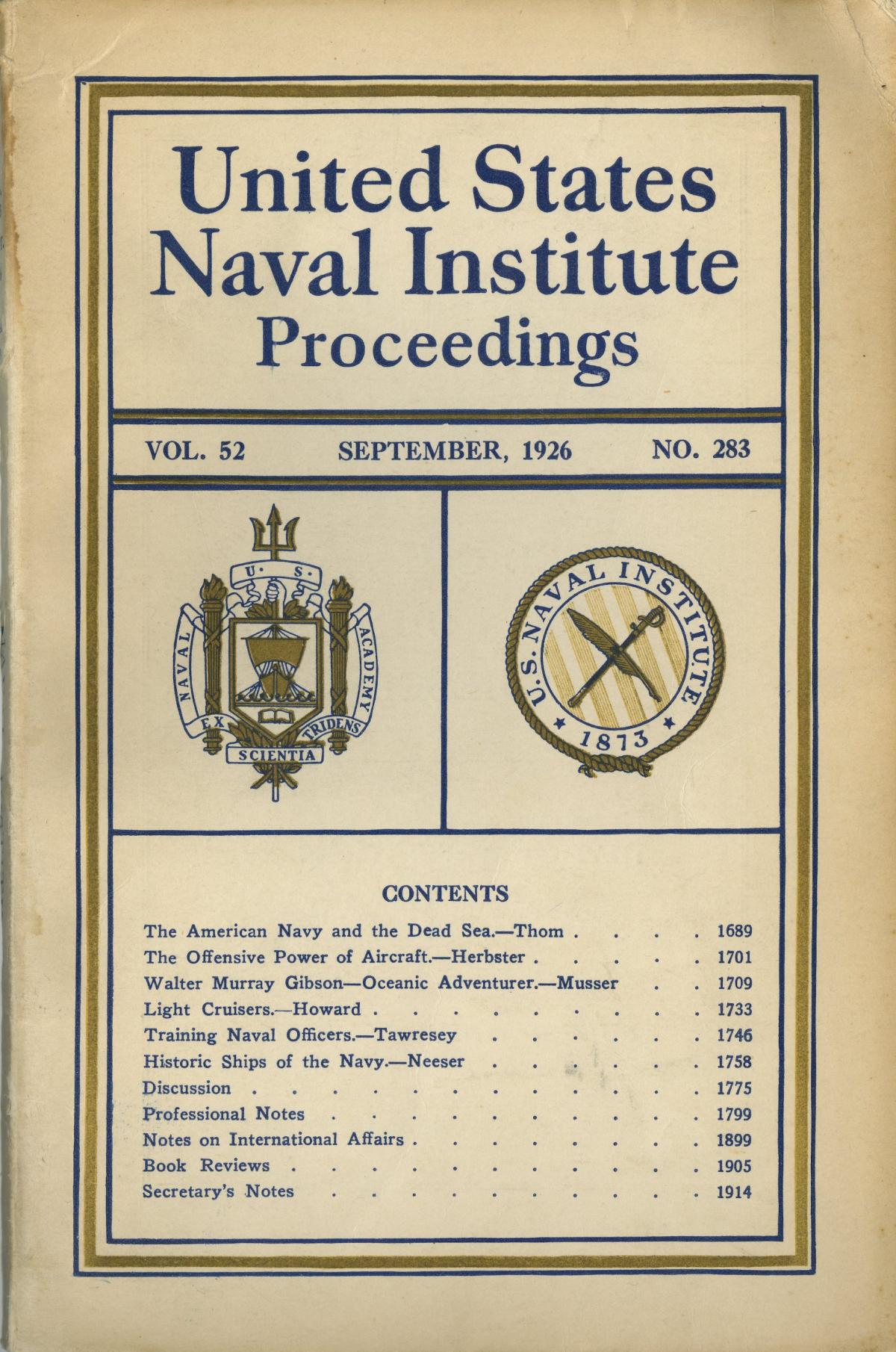Digital Proceedings content made possible by a gift from CAPT Roger Ekman, USN (Ret.)
Quicklinks
Receive the Newsletter
Sign up to get updates about new releases and event invitations.









The U.S. Naval Institute is a private, self-supporting, not-for-profit professional society that publishes Proceedings as part of the open forum it maintains for the Sea Services. The Naval Institute is not an agency of the U.S. government; the opinions expressed in these pages are the personal views of the authors.
Digital Proceedings content made possible by a gift from CAPT Roger Ekman, USN (Ret.)
Sign up to get updates about new releases and event invitations.